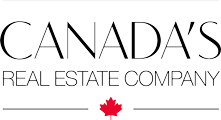Most homebuyers do their research when they set out to buy their new home. Whether you’re purchasing your first house or you’re entering the process for the second or third time, as a buyer you need to be aware of the full costs of your transaction. In earlier blog posts, we discussed the additional financial responsibilities of home inspections and closing costs. But even after the sale is complete, there are additional expenses that buyers will need to budget for.

The Real Estate Council of Ontario’s Connect Magazine reminds buyers that the expenses don’t stop at closing. The actual process of moving into your new home can be an expensive one. After-closing costs can include moving expenses, repairs, service hook-ups, and more. These costs can add up and require a pre-planned budget.
If you’re planning to hire professional movers, it’s best to contact several different companies to find the best price. Hiring movers can save you a lot of trouble on the day you move into your new home. There will already be lots on your mind, and knowing your items will be moved safely and securely can help make the day less stressful. However, if you do decide to hire movers, you’ll need to be prepared for the costs involved. Costs may vary depending on your location, how far you are moving, or if you require additional services from your movers, like packing or wrapping breakable items.
Another often overlooked expense is how your children and your pets will be cared for on the day of the move. A move can be especially stressful for kids, and it may help make the process run smoothly if you have them spend the day with a friend or relative. If you don’t have a family member who’s available, you’ll probably need to hire someone even just for a few hours. If your pets are large or especially nervous in new spaces, it can sometimes be helpful to have them stay in a familiar kennel or with close friends while you’re moving. This will help ease your pet’s transition once you’re already in your new house and starting to unpack. Depending on your pet’s needs, you may need to budget some additional money to ensure your pet is properly cared for.
You’ll also need to prepare for the services you’ll need at your new house, with some of them starting on the very first day. These services will likely include your gas, water, and hydro, and might also include connections for cable, internet, and a home phone. You’ll want to be sure to contact these companies ahead of time and tell them the day of your move. Some companies also charge a hook-up fee. You’ll want to get in touch with each company before your moving date, so you’re aware of how much you’ll be spending or how long you’ll need to wait for your services to be connected.
You may also decide to invest in some repairs or renovations soon after you move into your new home. If the home inspection revealed any serious problems, you’ll need to spend the money to have those problems fixed as soon as you can. Many buyers also see the first months in their new home as the perfect time to spend some extra money on renovations, new furnishings, and decorations such as curtains and artwork. The costs for these updates can add up if you haven’t fully prepared your budget. Make sure you have a clear outline of how much you’ll need to spend and how much you’d like to spend on additional updates, well before your closing date.
When buying a new home, ensure you speak to your sales representative who can explain some of the additional costs to you. You can read the full list of additional expenses in RECO’s Connect Magazine. If you’d like more information, please contact us directly or search for a sales representative who can help you. For regular updates on home buying or selling, feel free to subscribe or sign up to have our blog posts delivered directly to your e-mail inbox.













